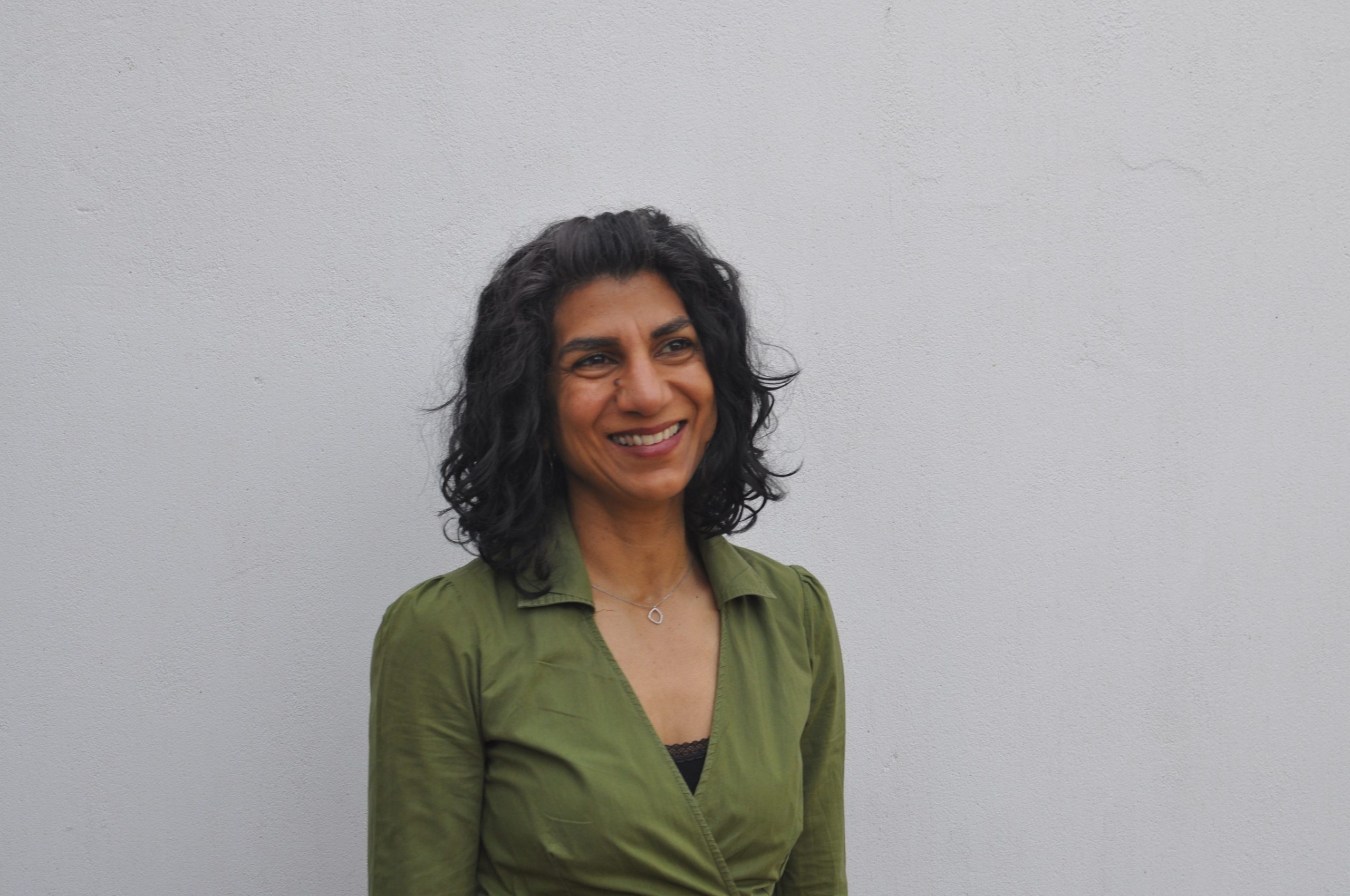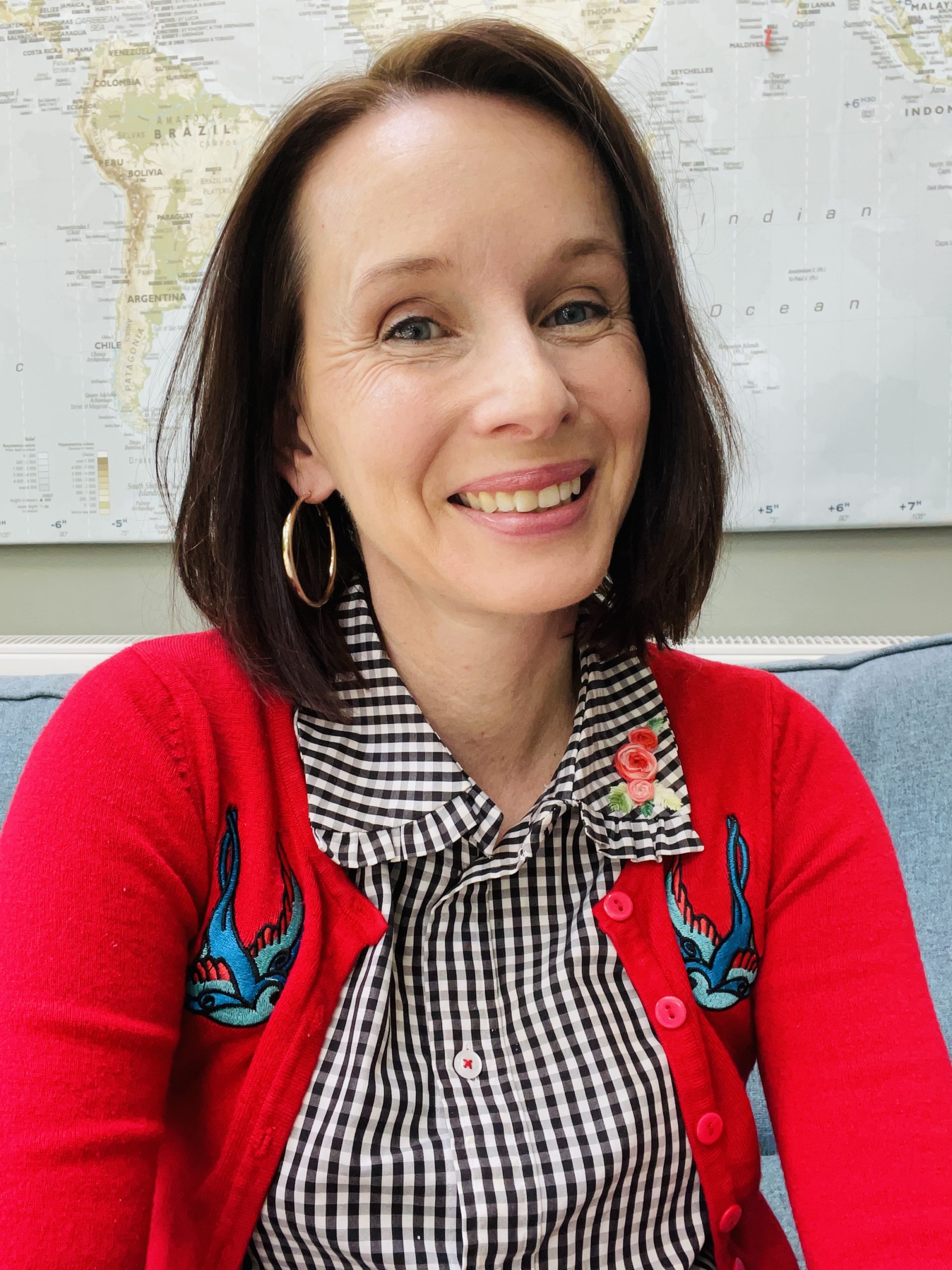One intensive weekend course was all it took for me to fall in love with sewing my own clothes. Although I knew instantly that I loved creating my own wardrobe, little did I realise then how important sewing would become in my life.
At 5′ 1″, I’d spent most of my life struggling to find clothes that fit me properly, in which I felt good in and truly myself. Wearing blazers which swamp you in a professional environment does not do much for the self-confidence. After having three children in the space of sixteen months (Twins followed shortly after my first born), there was now two dress sizes difference between the top and the bottom of my body. My desire for a well-fitting dress and to find my own identity again after becoming a busy mum, led me to taking a weekend sewing course as a Mother’s Day present. It was to be the best present ever.
Now besides living in a world of nappies, sleepless nights and constant washing I could immerse myself in an exciting world of fabrics, patterns and endless possibilities. Once you can read a pattern and use a few basic stitches on a sewing machine, there’s no boundaries to the clothes you can create.
It was wonderful to unwind at the end of another hectic day by working on my next project. I enjoyed the process as much as the satisfaction felt when it was completed. As my handmade wardrobe grew, so did my confidence. I felt my identity moving away from “the woman with three toddlers” to someone who was respected for having an interesting hobby and skill. Besides enabling me to create clothes I felt better about myself in, sewing also provided me with new social connections with like-minded people.
Now in the early years of perimenopause, I have new challenges to overcome. Whilst knowing from experience that a creative hobby provides many benefits, perimenopausal symptoms can hinder motivation. Tiredness and lethargy can be a barrier to working on a project. Feelings of self-doubt can hamper my decision making and confidence. My brain fog can cause me to make silly mistakes and to take longer to process instructions, both of which can be very frustrating.
However, the benefits certainly outweigh the challenges. “When I am advising about menopause, as well as prescriptions and lifestyle improvements I always talk about the importance of having some quality time doing an activity just because it’s enjoyed.” says Kathie Cooke, a BMS Registered Menopause Specialist at Rodney Street Clinic in Liverpool. “Creative crafts are ideal. There is the satisfaction from the finished product, as well as the mindfulness and sense of calm focussing on the activity brings.” As she further explains, “We can only process one thought at a time. Pushing worries and stresses aside and becoming absorbed in an enjoyable activity for a while is therapeutic: reducing stress can reduce the intrusiveness of menopause symptoms and improve quality of life.”

Dr Haleema Sheikh, a specialist in integrative women’s health and bioidentical hormone balancing for the Marion Gluck Clinic, also recognises the benefits of a creative hobby. “When we engage in a creative task there are multiple beneficial effects on the brain; it causes activation of multiple areas of the brain and improved connectivity between them, fostering neuroplasticity and cognitive flexibility.”
During menopause, Dr Sheikh advocates that a creative hobby can serve as “An effective self-care strategy which offers access to emotional wellbeing and cognitive health with the neuronal connectivity benefits”. Furthermore, she explains how the creative process can help with hormonal balance “by reducing cortisol levels and promoting the release of dopamine and serotonin”. This reduction in the stress hormone but rise in hormones associated with pleasure and well-being, “can contribute to a smoother menopausal experience” explains Dr Sheikh.
Knowing both the benefits and challenges of a creative hobby at this time of life, now I modify how I spend my crafting time to adapt to my perimenopause symptoms. I do what feels right at the time and don’t work against what my body is telling me. If fatigue takes over, instead of sewing I will browse patterns, look online for inspiration or create a mood board. I accept that some days I will achieve no more than cutting out a pattern or tidying my sewing area. I sew in small doses and when my brain needs a break I use a familiar pattern or choose a quick sew project. Sometimes it feels good to swap time at the sewing machine for a more meditative craft such as hand sewing or embroidery. When my kids push my buttons and I feel the rage rising, I know walking away to look at my lovely fabric pile for a few minutes will be better for us all!
Creating clothes that suit my changing body shape provides me not only with a wardrobe that makes me feel happy, but also proud, visible and valued. With a wealth of creative pursuits available, I would encourage anyone to try a new creative hobby. Whether it’s sewing, crochet, cardmaking, knitting, pottery or painting, you never know where an introductory course could lead you. You might just have an enjoyable day out, or it may lead you to a passion that brings you feelings of achievement, happiness and purpose.
For more stories, advice and interviews, head to the Menopause Your Way Stories hub. To browse and shop a curated edit of menopause products, visit the Menopause Your Way page on QVC.
The content of the QVC website is for information only. It is not intended as a substitute for professional medical advice, diagnosis or treatment. Always seek the advice of your doctor or other qualified health provider with any questions you may have regarding a medical condition. Never disregard professional medical advice or delay in seeking it because of something you have read on the QVC website.
We understand there’s a lot of information out there on the menopause. You can read through the NICE guidance on menopause management, as well as the NHS overview on the menopause.




